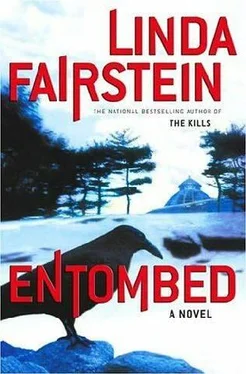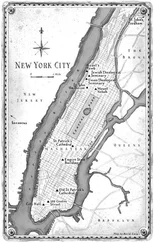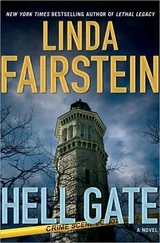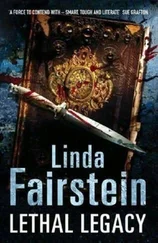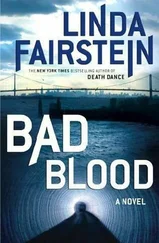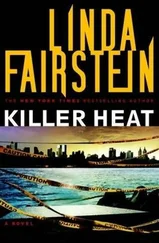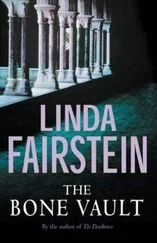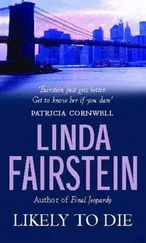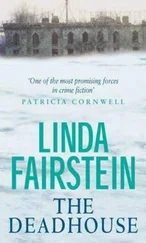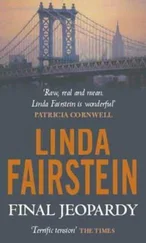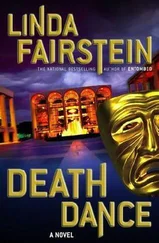Linda Fairstein - Entombed
Здесь есть возможность читать онлайн «Linda Fairstein - Entombed» весь текст электронной книги совершенно бесплатно (целиком полную версию без сокращений). В некоторых случаях можно слушать аудио, скачать через торрент в формате fb2 и присутствует краткое содержание. Жанр: Триллер, на английском языке. Описание произведения, (предисловие) а так же отзывы посетителей доступны на портале библиотеки ЛибКат.
- Название:Entombed
- Автор:
- Жанр:
- Год:неизвестен
- ISBN:нет данных
- Рейтинг книги:4 / 5. Голосов: 1
-
Избранное:Добавить в избранное
- Отзывы:
-
Ваша оценка:
- 80
- 1
- 2
- 3
- 4
- 5
Entombed: краткое содержание, описание и аннотация
Предлагаем к чтению аннотацию, описание, краткое содержание или предисловие (зависит от того, что написал сам автор книги «Entombed»). Если вы не нашли необходимую информацию о книге — напишите в комментариях, мы постараемся отыскать её.
Entombed — читать онлайн бесплатно полную книгу (весь текст) целиком
Ниже представлен текст книги, разбитый по страницам. Система сохранения места последней прочитанной страницы, позволяет с удобством читать онлайн бесплатно книгу «Entombed», без необходимости каждый раз заново искать на чём Вы остановились. Поставьте закладку, и сможете в любой момент перейти на страницу, на которой закончили чтение.
Интервал:
Закладка:
Mike interrupted. "Yeah. They're the ones who founded Fordham College."
"Well, there you go, Mr. Chapman. He used to love to walk over to have discourse with the Jesuit scholars and use the books in their library. We'll get you into this, too."
"I'm about as deep in as I want to get, thanks. But now I understand why he named a character Montresor," Mike said.
Zeldin expected another wisecrack.
"That name doesn't mean anything to you?" Mike asked. "You know Randall's Island?"
We all did. It sat in the East River, between Manhattan and the Bronx.
"John Montresor was a British captain during the Revolutionary War. He bought that island and moved his family there, spying for the Brits and advising them where to base invasions in New York Harbor. He's the guy who witnessed Nathan Hale's execution, the reason we know Hale's last words."
"'I only regret,'" Zeldin said, "'that I have but one life to give for my country.' I'm impressed, Mr. Chapman. I guess Poe didn't have to look much further than his backyard to dig up some names for his tales."
"You talked about the tragic circumstances of Poe's life yesterday," I said. "Would you mind telling us what they were?"
I had a notepad ready. I was hoping the salient facts would be things I could later compare against the life of a vengeful killer who may have been identifying too closely with the great writer.
"Poe's grandfather was a Revolutionary War hero. Somewhat celebrated in Maryland, where the family had settled. His father, David, was the typical black sheep, even back then."
"In what way?"
"Defied the general's wishes by dropping the study of law to become an actor. And a drunk. And married beneath his class, to a woman of no pedigree. An all-round ne'er-do-well," Zeldin said.
"Whom did he marry?" I asked.
"An itinerant actress named Eliza. A young woman who toured with small companies playing comic juvenile roles and ingénues. Edgar was their second child, born while Eliza was performing in Boston in 1809."
I had to remind myself, now that the events of Poe's life seemed to be responsible in some way for the recent deaths, that Poe himself had lived two hundred years ago.
"A daughter came along two years later, and by the time of her birth, David Poe had disappeared. He was only twenty-five years old."
"What do you mean, disappeared?"
"Exactly that. He was never heard from again. I can't tell you what became of him, where he lived thereafter or when he died. He simply vanished from their lives. Estranged from his parents in Baltimore, already deeply in debt with three babies to support, lousy reviews for his stagecraft, and a serious alcohol problem, he simply abandoned Eliza and the children."
"So Poe never knew his father?" I asked. "Eliza raised the children alone?"
Zeldin shook his head. "She didn't have the chance. The local newspapers wrote of her 'private misfortunes.' The baby girl was rumored not to be David Poe's child, and within months Eliza had moved her little family to Richmond to try to make a new life for them. She had a catastrophic health failure and become a bedridden charity case shortly after she arrived. Before Edgar was three, his beloved mother had died."
A broken home, illegitimacy, alcohol abuse, and now three orphaned children-it all sounded like an overwhelmingly dismal start to the boy's life.
"Who raised them?"
"Another emotional blow to the young trio. They were separated from each other. David Poe, senior-the parental grandfather who lived in Baltimore-agreed to take in the oldest child, whose name was William Henry. And a local family named Mackenzie took in the infant girl, Rosalie. It was Edgar who was the hardest to place."
"At the age of three?"
"Yes, Miss Cooper. As it happened, a well-to-do merchant in Richmond was convinced by his wife-they were childless-to raise young Edgar. He became a ward of John and Frances Allan-"
"So that's where the name Allan comes from," Mike said. "I just assumed it was his given middle name. I didn't know he'd been adopted."
"Adoption might have been an easier path for him, Mr. Chapman. John Allan was a tough taskmaster. He refused to adopt the boy. Allan was entirely self-made and used his own childhood deprivation to try and instill in young Edgar that kind of school-of-hard-knocks experience. Sort of 'Why should I hand you anything that I had to work hard for?' So the only promise he made the Poe family was that he would provide the boy with a liberal education."
"I take it the Allans held up that part of the bargain," Mercer said.
"Yes, they actually moved to England for a time, where Edgar's first serious schooling began. They sent him from there to Scotland to board for a year when he was only seven, where he was quite lonely. Five years later, when John Allan's business failed, the family returned to Richmond. You know about his stay at university?"
"A bit," I said. "In Charlottesville."
"Mr. Jefferson's great university had just been in existence for one year. Edgar was only seventeen when he entered, living in a room on the Lawn that you can still see today."
"Yes, I know. The unlucky number thirteen."
"Superstitious, Miss Cooper? Well, maybe his stay there would have been cursed anyway. Poe loved language. He studied French and Italian and Latin. He was a debater and a great swimmer. He wrote verse and sketched charcoals. That was the good side of student life at Virginia. But there was a dark side as well."
"In what sense?"
"Virginia was the most expensive college in the country at that time, but in addition to the usual costs he ran up, Edgar Poe developed a serious gambling habit, falling several thousand dollars in debt. And alcohol was already becoming a problem for him, as it had been for his father. He gambled and drank, drank and desperately gambled at cards."
"Did he finish college?" I asked.
"It was a two-year course at the time. He left after the first year, and that marked his major rift with John Allan, who refused to pay the boy's debts and wouldn't let him return to school. They quarreled more vociferously than ever before, and as Poe frequently wrote in his letters, he was keenly aware that this surrogate father who had raised him had absolutely no affection for him."
"How painful for a young man who had no family to speak of. It's so odd then, that Poe used his name."
"You're wrong, Miss Cooper. We use his name-Edgar rarely did."
"I don't understand."
"So far as we know, the first time Poe signed his name using Allan as part of the signature was years later, after John Allan's death. He often used the initial A when he published works, but he rarely used the name Allan, the way we do today. I truly think he hated that man."
I thought of the signature that was so familiar from reproductions of books and manuscripts. Zeldin was right, of course. It was Edgar A. Poe-the name Allan was never spelled out in the writer's own hand. "So Poe left Richmond?"
"At the age of eighteen he was alone in the world again, and restless. He struck out for Boston-probably because his mother had written of loving the city so much. That's where a forty-page volume of poetry called Tamerlane first appeared in 1827, wrapped in plain brown paper and distributed around town by an anonymous author."
"Poe's first publication?"
"Indeed, Miss Cooper. He never signed any of the copies, nor did he even keep one for himself. Only a handful exist at this point in time. It's no secret that one of our members bought one at auction last year for six hundred thousand dollars. But that's today. As you know, poetry has never been the means to support many young men or women. So Poe took another route-he lied about his age and enlisted in the army. Claimed to be twenty-two years old and said his name was Edgar Perry."
Читать дальшеИнтервал:
Закладка:
Похожие книги на «Entombed»
Представляем Вашему вниманию похожие книги на «Entombed» списком для выбора. Мы отобрали схожую по названию и смыслу литературу в надежде предоставить читателям больше вариантов отыскать новые, интересные, ещё непрочитанные произведения.
Обсуждение, отзывы о книге «Entombed» и просто собственные мнения читателей. Оставьте ваши комментарии, напишите, что Вы думаете о произведении, его смысле или главных героях. Укажите что конкретно понравилось, а что нет, и почему Вы так считаете.
